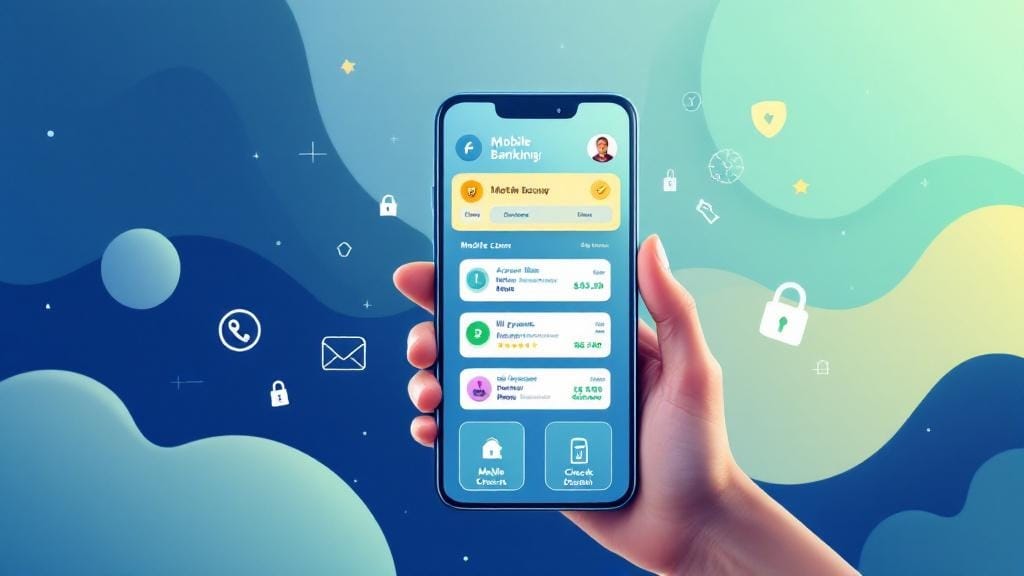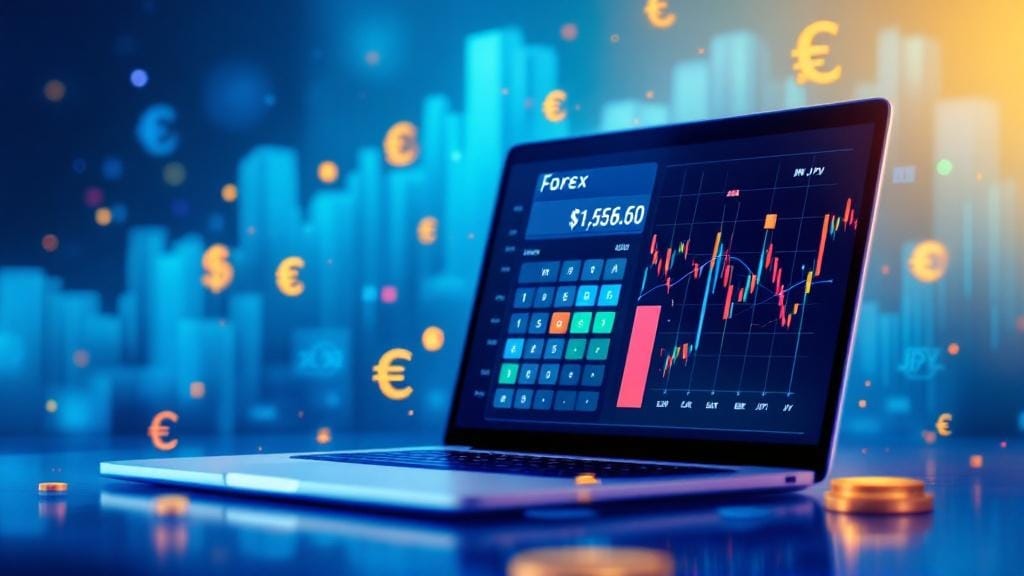In today’s digital-first world, mobile banking apps have become an essential part of managing personal finances. Whether it’s for checking account balances, transferring money, or paying bills, a mobile banking app provides the convenience of handling all financial transactions on the go. This article explores the features, benefits, and some of the top mobile banking apps to help you choose the right one for your financial needs.
Table of Contents:
-
What is a Mobile Banking App?
-
Key Features of a Mobile Banking App
-
Benefits of Using Mobile Banking Apps
-
Security Features in Mobile Banking Apps
-
Top Mobile Banking Apps to Try
-
FAQs about Mobile Banking Apps
What is a Mobile Banking App?
A mobile banking app is a digital platform provided by financial institutions, enabling users to manage their accounts, perform transactions, and access various financial services through their smartphones or tablets. These apps allow users to carry out tasks traditionally handled at physical bank branches, such as:
-
Checking account balances
-
Transferring money between accounts
-
Paying bills
-
Depositing checks via mobile camera
With mobile banking, users can enjoy secure transactions and instant money transfers, making it a preferred choice for managing personal finances.
Key Features of a Mobile Banking App
Mobile banking apps come with a variety of features that make financial management simple, efficient, and secure. Some of the most common and useful features include:
1. Account Management
Most banking apps allow users to view their account balances, transaction histories, and account statements. Some apps also let you organize your finances, categorize spending, and set budgets.
2. Money Transfer
Sending money to other accounts, either within the same bank or to other banks, has never been easier. Many mobile banking apps now offer instant money transfer apps for seamless transactions, even across borders in some cases.
3. Bill Payments
From utility bills to credit card payments, mobile payment apps can save time and effort by scheduling automatic bill payments or manually paying them instantly.
4. Mobile Check Deposit
No need to visit the bank to deposit checks anymore. Mobile banking apps have features like check deposit using the camera on your smartphone. You simply take a photo of the check, and it gets deposited straight into your account.
5. Card Management
You can block or unblock your debit or credit cards, check transaction history, and set up spending limits directly from the app.
6. Notifications and Alerts
Stay on top of your finances with real-time notifications for account activity, low balances, upcoming bills, and suspicious transactions. These alerts are vital for security and help you avoid fraud.
7. Personalized Dashboard
The mobile banking app interface offers a clean and personalized experience, providing quick access to your most frequently used services like mobile banking services and secure transactions via mobile.
Benefits of Using Mobile Banking Apps
The rise of mobile financial services has transformed the way people manage money. Let’s look at some key benefits:
1. Convenience
You can access your account anytime and anywhere, which eliminates the need to visit a branch for basic banking tasks. Whether you’re waiting in line or commuting, banking is now at your fingertips.
2. Fast Transactions
Transactions like instant money transfers can be done in real-time, making it easier to send or receive funds without the delays that typically occur with traditional banking methods.
3. Enhanced Security
With features like mobile banking authentication, encrypted data, and secure logins, mobile banking apps offer robust protection for your personal and financial information.
4. Cost-Efficient
Mobile banking reduces the need for paper statements, branch visits, and ATM fees. You can also enjoy low or no fees for digital transactions, especially for contactless payments on mobile apps.
5. 24/7 Access
Unlike traditional banking hours, mobile banking apps provide round-the-clock access to your financial information. You can perform transactions at any time of day or night, even on weekends or holidays.
Security Features in Mobile Banking Apps
Security is paramount when it comes to banking apps for iPhone and Android mobile banking apps. The following security features ensure that your financial data remains safe:
1. Multi-Factor Authentication (MFA)
To protect against unauthorized access, mobile banking apps require more than just a username and password. Mobile banking authentication often includes biometric identification (fingerprint or face recognition) and OTPs (One-Time Passwords).
2. Encryption
Your data is encrypted to make sure that sensitive financial information is not intercepted during transmission. Payment app security ensures that every transaction is secure.
3. Secure Wi-Fi Networks
To reduce the risks of hacking, most mobile banking apps encourage using secure networks and offer security features like VPNs and automatic logout after inactivity.
4. Fraud Detection
With mobile banking security, apps use sophisticated algorithms to detect suspicious activity and alert users immediately about any potential fraud attempts.
5. Biometric Access
Many modern banking apps incorporate biometric features like fingerprint scanning or face recognition to make logging in secure and fast.
Top Mobile Banking Apps to Try
There are numerous banking apps available for iOS and Android, offering a variety of features and capabilities. Let’s take a look at some of the top banking apps that are popular for their excellent features and security.
1. Chase Mobile App
Chase is one of the largest banks in the U.S. and offers an intuitive and secure mobile banking app with features like account management, bill pay, secure transactions via mobile, and the ability to track spending patterns.
2. Wells Fargo Mobile App
Known for its simplicity, the Wells Fargo app offers features such as mobile check deposit, instant money transfers, and access to a wide range of banking services. It is available for both iPhone and Android mobile banking apps.
3. Paytm (India)
For users in India, Paytm is a popular mobile payment app that integrates banking features with its wallet services. It allows users to pay bills, transfer money, and make online purchases, all within one app.
4. Revolut
A versatile banking app that offers excellent services for international transactions. Revolut stands out for its mobile financial services, which include currency conversion, investing, and budgeting tools.
5. Bank of America Mobile Banking App
With features such as secure transactions, bill payments, and personalized spending insights, the Bank of America app is a top choice for mobile banking users in the U.S.
6. Monzo
Monzo is a popular app-based bank in the UK, offering full digital banking experiences through its mobile app. It includes features like instant money transfers, bill payments, and budgeting tools.
7. HDFC Mobile Banking App (India)
For Indian users, the HDFC Mobile Banking App offers a comprehensive suite of mobile banking services, including bill payments, fund transfers, and the ability to track investments.
FAQs about Mobile Banking Apps
1. What are the best mobile banking apps?
Some of the best mobile banking apps include Chase, Wells Fargo, Paytm, Revolut, and HDFC Mobile Banking. These apps are known for their user-friendly interfaces, secure transactions via mobile, and wide range of features.
2. How secure are mobile banking apps?
Mobile banking apps use advanced security features such as multi-factor authentication, encryption, and biometric access to protect user data and ensure safe transactions.
3. What features should I look for in a mobile banking app?
Look for features such as instant money transfers, mobile check deposit, secure transactions, bill payment options, and a user-friendly mobile banking app interface.
4. Can I transfer money internationally using a mobile banking app?
Yes, many digital banking experiences include options for international money transfers. Apps like Revolut and Paytm offer this feature, making it easy to send money across borders.
5. Are mobile banking apps free to use?
Most mobile banking apps are free to download and use, though some may charge fees for certain transactions or premium features, like mobile banking app development tools for custom solutions.
6. How do mobile banking apps protect my privacy?
Mobile banking apps use payment app security, encryption, and secure authentication methods like biometrics to ensure your privacy is protected.
Conclusion
The rise of mobile banking apps has revolutionized the way we manage our finances. With their user-friendly interfaces, convenient features, and robust security measures, these apps make banking on-the-go a breeze. Whether you’re looking for a way to transfer money, track spending, or pay bills, a mobile banking app offers the ultimate in flexibility, convenience, and security.
As the digital banking experience continues to evolve, it’s important to choose an app that meets your needs, offers secure transactions, and provides excellent customer service. By selecting the right app, you can enjoy mobile financial services and manage your money with confidence.
This blog post is designed to guide you in selecting the right mobile banking app and understanding how to leverage its features for a more efficient and secure banking experience.








Comments (0)